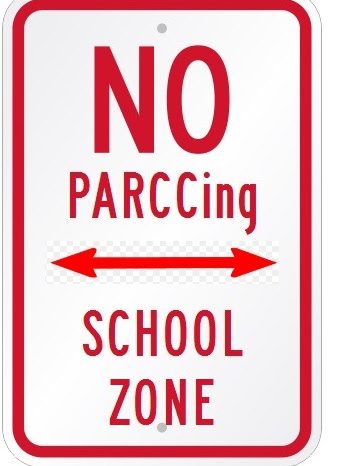Why Massachusetts Should Abandon the PARCC Tests & Common Core
It is difficult to find any public analysis and comments by teachers, parents, researchers, or literary scholars on PARCC’s “practice” and “sample” test items for English language arts for grades 3-11. Taking the bull by the horns, that is what I decided to do in my invited testimony before the Massachusetts Board of Elementary and Secondary Education at the public hearing at Bridgewater State University on June 10, 2015, on whether the Board should abandon the MCAS tests and adopt the PARCC tests.
In my written testimony, I first describe my qualifications, as well as the lack of relevant qualifications in Common Core’s standards writers and in most of the members of Common Core’s Validation Committee, on which I served in 2009-2010. I then detail some of the many problems in the 2011 Massachusetts English language arts standards, written by David Coleman, Susan Pimentel, James Patterson, and Susan Wheltle (so the document indicates), in the tests based on Common Core’s standards (PARCC), and in the two external reports—one issued in February 2015, the other yet to be completed—comparing the PARCC tests with MCAS tests. I conclude by offering several recommendations for parents and teachers who want civically sound and academically rigorous standards and tests written and reviewed by the state’s English teachers and who want a form of accountability that doesn’t penalize their children’s teachers for results of tests based on either the Coleman et al standards or Common Core’s standards.
Among the many problems with PARCC in 2014-15, based on the examples of test items given, I note the following:
* The overall reading level of PARCC sample test items in most grades seems to be lower than the overall reading level of test items in MCAS ELA tests based on the pre-Coleman et al standards—sometimes by more than one reading grade level. E.g., an excerpt from The Red Badge of Courage is an example in the 2015 grades 10 and 11 PARCC. But an excerpt from this novel was assessed in a pre-2011 grade 8 MCAS. E.g., an excerpt from Joseph Conrad’s Heart of Darkness is an example in the 2015 grade 11 PARCC but appears in a 2010 grade 10 MCAS.
* PARCC doesn’t tell us who determines the cut (pass/fail) score, where it will be, and who changes it, and when. Cut scores on MCAS tests are set by Massachusetts citizens.
* PARCC offers too many tests at each grade and across grades.
* PARCC requires extensive keyboarding skills and too much time for test preparation.
* PARCC plans to provide only a few released test items for teachers to use, it seems.
* The change to a grade 11 PARCC for fulfilling the requirement for a high school diploma hurts low-achieving students, who often need two years for remediation and retests before graduation.
* The PARCC tests are very long, even though they have been recently shortened.
* The writing prompts in PARCC in 2015 do not elicit “deeper thinking” because students are not given a provocative question about a reading assignment and encouraged to make and justify their own interpretation of an author’s ideas based on a range of sources, some self-chosen. They are almost always given the sources to use, beginning in grade 3.
* The two-part multiple-choice format in PARCC (and in SBAC) often (though not always) requires students to engage in a textual scavenger hunt for the specific words, phrases, or sentences that led to their own thinking when answering the previous question. This two-part multiple-choice format is especially taxing and problematic in the early grades. E.g., in grade 3: “Part B: Which sentence from the story supports the answer to Part A?” “Which detail supports the answer to Part A?” “Which detail from X shows another example of the answer to Part A?” “What phrase from paragraph 14 helps the reader to understand the meaning of thriving?” “Which section in X introduces how the scientists made wolves feel comfortable in the park?” In sum, the questions are poorly worded, confusing, unfriendly to children, and cumbersome.
Watch my oral testimony:
In my testimony, I offer 7 recommendations for Massachusetts:
- Fewer grades tested (just 4, 8, and 10), as in the 1993 MERA and 1994 authorization of ESEA
- Paper and pencil tests; no computer-based tests
- All or most test items released every year, as MERA requires
- Retention of grade 10 competency determination for a high school diploma, required in MERA, for the benefit of low-achieving students
- Tests requiring less time for preparing for and teaching to the tests
- Test passages and questions chosen and reviewed by Massachusetts English teachers
- A Massachusetts-determined cut score



